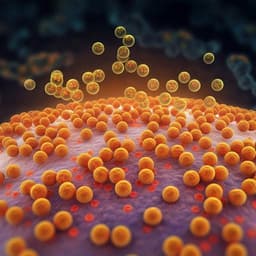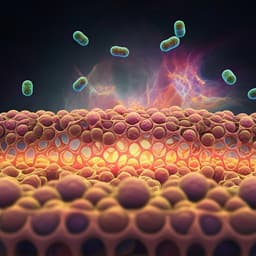
Medicine and Health
The gut microbiome-prostate cancer crosstalk is modulated by dietary polyunsaturated long-chain fatty acids
G. Lachance, K. Robitaille, et al.
This groundbreaking study reveals the crucial role of the gut microbiome in prostate cancer progression and highlights how dietary omega-3 fatty acids can potentially mitigate this impact. Conducted by Gabriel Lachance and colleagues, the research uncovers the fascinating relationship between gut health and cancer growth, offering hope for new therapeutic approaches.
Related Publications
Explore these studies to deepen your understanding of the subject.







